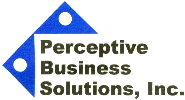|
The
Internet can be a Great tool for finding wealthy prospects. However,
not all information available on the Web is public. Be careful how
you do your research. Take, for instance, lists of donors to political
campaigns. Many Web sites provide access to this kind of "public"
information. At these sites, you can view donors at the zip code
level and see names, professions, contribution amounts, and even
addresses.
Sounds
like a gold mine, right? Wrong. Use of this data for prospecting
purposes is illegal in most states. For example, in my state of
Pennsylvania, the use of such lists is governed by Volume 25, Purdons
Statutes, Section 3249, subsection (d) of the state Statute book:
"It shall be unlawful for any person to use the contents of any
statement or report filed under this article for any commercial
purpose whatsoever." It's the law. Campaign or party officials can
sue to enforce the law-and they do.
What
about using databases of charitable institutions? Guidestar.com,
a Web site produced by Philanthropic Research, Inc., was designed
for potential donors to research non-profit organizations. Guidestar's
site says it "gathers and distributes data on more than 850,000
IRS-recognized nonprofits." That data includes financial information
and, in many cases, even the names of the groups' board members.
But
Guidestar did not design the site so financial advisors could prospect
the organizations and board members. The home page includes this
warning: "The Guidestar site is for personal, informational use
only. Any other use, including resale of the information or use
for commercial gain, is prohibited except in accordance with a Guidestar
licensing agreement."
Or
let's say you're building a client base and are considering the
thousands of people who attended your school as potential prospects.
You figure you'll use the alumni directory. Think again.
Many
schools restrict the use of this information. My alma mater (Stevens
Institute of Technology in Hoboken, New Jersey) includes the following
warning in its alumni directory: "using the addresses or other information
contained in this directory for any private, commercial or political
mailing is strictly prohibited."
The
Legal Way
So
are there other ways of finding financial information on nonprofits
or alumni of your alma mater? Yes. Most cultural organizations publish
annual reports (also called Records of Philanthropy or Reports to
the Community). These are often public documents available for the
asking from the organization. Many financial advisors are involved
in the community through cultural activities. As you consider various
organizations, request a copy of the annual report.
As
for your old classmates, try contacting the alumni office. Some
schools have allowed financial advisors to hold seminars exclusively
for alumni and to feature the alumni association logo on the invitation.
Most schools have alumni clubs in major metropolitan areas. The
clubs often feature guest speakers at meetings.
Leaving
Tracks
If
you're not scared off by the fact that it's illegal or expressly
prohibited, you may not want to use such lists for another reason:
you can easily get caught. Providers take steps to catch unauthorized
users of their lists. The simplest technique is to "seed" the list
with a few names that appear nowhere else. If mail arrives for that
name, your contact information has been captured.
When
you visit a Web site, you often leave evidence you were there, either
by registering or by the use of "cookies," electronic calling cards
exchanged between your Web browser and many sites.
The
Internet is a great source of information, but remember to tread
carefully-and legally-and respect others' rights.
Bryce Sanders, a 20-year financial services veteran,
is president of Perceptive Business Solutions Inc. in New Hope, Pennsylvania,
which trains advisors on how to identify and meet high-net-worth individuals
and transform them into clients. He can be reached at brycesanders@msn.com.
|

